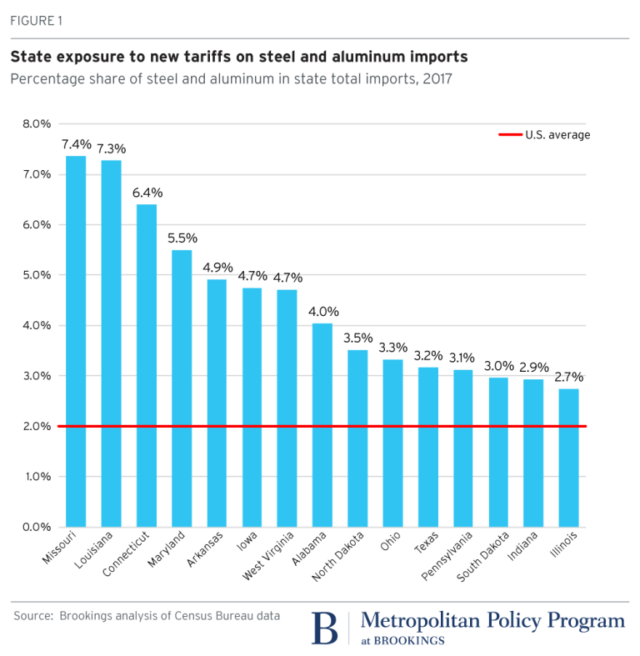Canada Rejects Oxford Report: Most US Tariffs Remain

Table of Contents
The Oxford Report's Claims and Canada's Rebuttal
The Oxford Economics report predicted a relatively quick removal of US tariffs on Canadian goods, citing improved US-Canada relations and economic pressures. However, the Canadian government swiftly dismissed this optimistic forecast. Their rebuttal pointed to the continued presence of numerous tariffs, contradicting the report's timeline.
- Specific examples of tariffs that remain in place: Tariffs on Canadian lumber, steel, and aluminum continue to significantly burden these industries. Further, certain agricultural products still face substantial import duties into the US market.
- Statements from Canadian government officials explaining the ongoing challenges: Statements from Canadian trade ministers have emphasized the persistent negative impact of these tariffs on Canadian businesses and workers, highlighting the ongoing need for effective countermeasures. They stressed the discrepancy between the report's optimistic assessment and the on-the-ground reality.
- Mention any specific industries heavily affected (e.g., lumber, aluminum): The lumber and aluminum industries have been particularly hard-hit, experiencing significant job losses and reduced production capacity due to the continued presence of US tariffs. These tariffs have also negatively affected Canadian competitiveness in global markets.
Economic Impact of Persistent US Tariffs on Canada
The continued imposition of US tariffs on Canada has had a demonstrably negative economic impact. The effects ripple throughout the Canadian economy, impacting businesses, workers, and consumers alike.
- Job losses in affected sectors: Thousands of jobs have been lost in sectors like lumber, aluminum, and agriculture due to reduced demand and production cutbacks resulting from the tariffs. This has led to increased unemployment and economic hardship in affected communities.
- Increased prices for consumers: The tariffs have led to increased prices for Canadian consumers on goods subject to the tariffs, reducing purchasing power and impacting household budgets.
- Reduced competitiveness in global markets: Canadian businesses face difficulties competing internationally due to the higher costs imposed by the US tariffs, making their products less attractive to both US and global buyers.
- Impact on specific industries (e.g., agriculture, manufacturing): Beyond lumber and aluminum, the agriculture sector has also been significantly affected, with increased costs for exporting products like dairy and wheat. The manufacturing sector faces reduced competitiveness due to increased input costs.
Canada's Trade Strategies in Response to the US Tariffs
Faced with the ongoing challenge of US tariffs on Canadian goods, Canada has adopted a multi-pronged strategy to mitigate the negative impacts and diversify its trade relationships.
- Trade negotiations with other countries (e.g., CPTPP): Canada has actively pursued trade agreements with other countries, such as the Comprehensive and Progressive Agreement for Trans-Pacific Partnership (CPTPP), to diversify its export markets and reduce reliance on the US.
- Domestic support programs for affected industries: The Canadian government has implemented various support programs, providing financial assistance and resources to businesses and workers in sectors affected by the tariffs.
- Legal challenges to the tariffs: Canada has explored legal avenues to challenge the tariffs, arguing that they are unfair and violate international trade rules.
- Focus on innovation and diversification: Canada is investing heavily in research and development to encourage innovation and diversification within its economy, reducing its vulnerability to future trade disruptions.
The Role of International Trade Agreements
Existing and potential trade agreements play a significant role in shaping the response to the US tariffs on Canada.
- Analysis of the effectiveness of existing agreements in mitigating the tariffs: Existing agreements offer some level of protection, but their overall effectiveness in fully offsetting the negative effects of the tariffs remains limited.
- Discussion of potential future agreements that might help: The pursuit of new trade agreements with diverse partners is a key component of Canada's strategy to mitigate the impact of the US tariffs and build more resilient trade relationships.
Future Outlook and Potential for Resolution
The likelihood of a swift resolution to the US tariffs on Canada remains uncertain. The future trajectory will depend on several factors.
- Analysis of the political climate in both the US and Canada: The political climate in both countries, including the prevailing trade policies and priorities, will play a crucial role in shaping the future of this trade dispute.
- Potential scenarios for future negotiations: Various scenarios are possible, ranging from a gradual easing of tariffs to a prolonged period of trade tension.
- Expert opinions on the timeline for potential resolution: Experts offer varied opinions on a timeline, with some predicting a resolution within the next few years, while others anticipate a more protracted conflict.
Conclusion
Despite optimistic predictions from some reports, the reality is that the majority of US tariffs on Canadian goods remain a significant obstacle. This has and continues to have a substantial negative impact on the Canadian economy. The Canadian government's rejection of the Oxford report highlights the ongoing challenges and the need for proactive strategies. Understanding the implications of these ongoing US tariffs on Canada is crucial for navigating the current economic landscape. Stay informed about the evolving situation surrounding US tariffs on Canada. Regularly check for updates on trade negotiations and their impact on Canadian businesses and consumers. Staying informed about the implications of these US tariffs is crucial.

Featured Posts
-
 New Documents Expose Hamas Plan To Disrupt Israel Saudi Peace Efforts
May 19, 2025
New Documents Expose Hamas Plan To Disrupt Israel Saudi Peace Efforts
May 19, 2025 -
 Chateau Diy Budget Friendly Tips And Tricks
May 19, 2025
Chateau Diy Budget Friendly Tips And Tricks
May 19, 2025 -
 United Kingdoms Eurovision 2025 Performance A Detailed Look At 19th Place
May 19, 2025
United Kingdoms Eurovision 2025 Performance A Detailed Look At 19th Place
May 19, 2025 -
 Everything You Need To Know About Universals Epic Universe Opening Date Tickets And More
May 19, 2025
Everything You Need To Know About Universals Epic Universe Opening Date Tickets And More
May 19, 2025 -
 Eurowizja 2025 Czy Polska Ma Szanse Na Zwyciestwo Prognozy Ai
May 19, 2025
Eurowizja 2025 Czy Polska Ma Szanse Na Zwyciestwo Prognozy Ai
May 19, 2025
